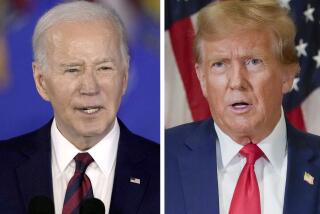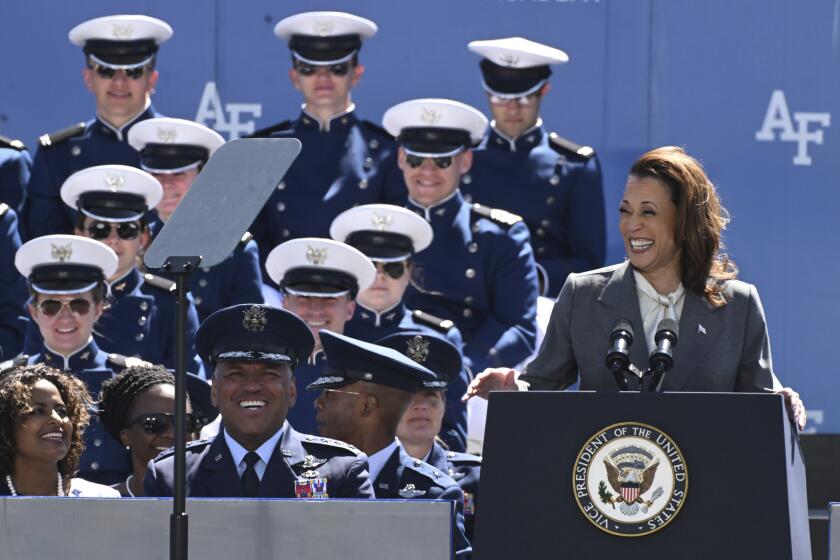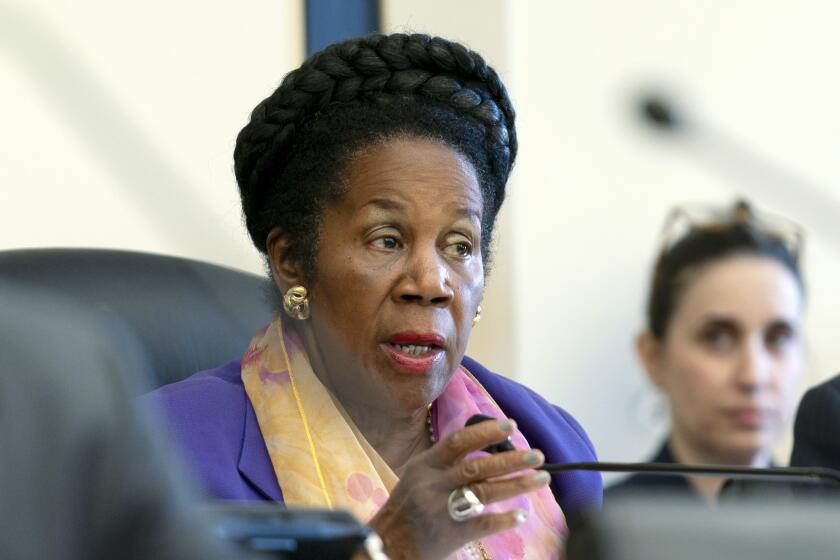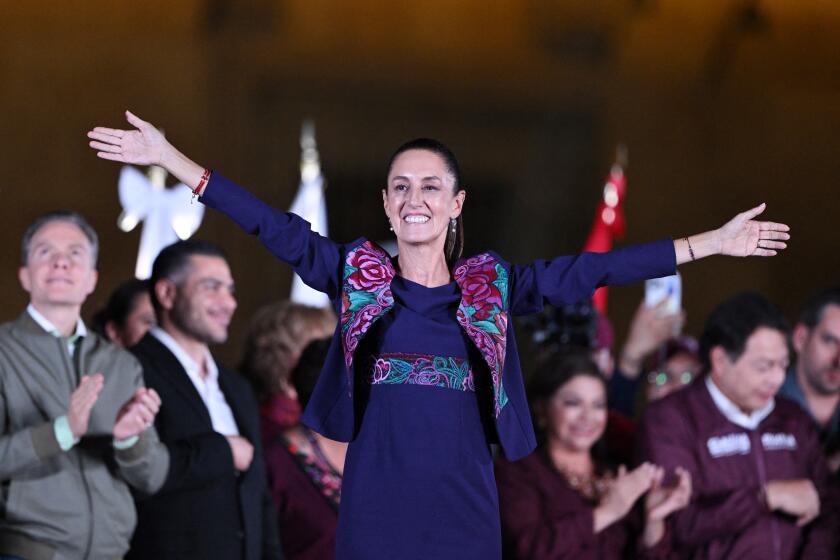Empty Words Add Up to Empty Policy : The Clinton team suggests that today’s world is too complex for a firm U.S. hand. Nonsense.
The relief occasioned by the heroic rescue of Capt. Scott O’Grady from the Bosnian wilds proved to be predictably short-lived for the President’s team. Workaday reality returned in the form of his lackluster performance at the G-7 summit in Canada, further evidence that the Administration’s foreign policy is entering a state characterized by a dangerous lack of self-confidence.
The downturn began when Clinton’s advisers took back what he said May 31 about the possibility of deploying U.S. ground troops in Bosnia. He wasn’t serious, they said after the idea encountered a hostile reception; it was merely “public diplomacy” designed to placate the Europeans.
This sort of sloppy indifference to the effect of presidential statements is reminiscent of the worst Third World practices. In Zimbabwe, for example, President Mugabe regularly delivers speeches in which he promises to expropriate commercial farmers and redistribute their property to landless peasants. When upbraided by Westerners for the consequent deleterious effect on agribusiness, Mugabe smiles like a schoolboy caught in some minor infraction. He is just trying to rally his supporters, he says; people should not take his political remarks too seriously.
Is this the standard by which President Clinton wants to be judged? That we should not take his words seriously? Even when he is talking about committing the country to overseas intervention in a raging civil war?
The disavowal of his speech at the Air Force Academy was bad enough. But there was another, more troubling aspect to the speech, one that leaves the impression that the White House foreign-policy team is, not to mince words, simply not up to the job of steering the nation’s course in the world.
The point of concern is this: In his speech, Clinton described American policy during World War II and the Cold War as “clear and straightforward” as compared with the challenge facing him of formulating post-Cold War foreign policy. This, he declared, is “complex.”
Clinton has uttered such self-pitying sentiments before. But that he and his speechwriters in the National Security Council should still be doing so at this stage of his presidency indicates that they have learned nothing about foreign policy.
Foreign policy is an inherently difficult business. Always has been, always will be. That is why the diplomatic services of other countries draw their recruits from their educational elite and usually avoid appointing ambassadors, let alone lower officials, according to political patronage.
The United States does things slightly differently. Nothing wrong with that. But the suggestion that F.D.R. and his successors were dealt an easy foreign-policy hand is simply preposterous.
Was lend-lease an easy option following the Nazi occupation of Paris in 1940? Far from it; Roosevelt had to use all his guile to put it into effect. In 1947, was American engagement the obvious answer to British withdrawal from Greece and Turkey? No, and Harry Truman had to overcome strong initial skepticism in Congress to sell it. Did the Marshall Plan, NATO, GATT and the post-war financial institutions spring fully formed into being? Of course not. They were the product of some of the most creative diplomatic minds the United States has produced. American success since World War II has taken sustained effort, especially by the post-war titans--Marshall, Kennan, Acheson--but also by the honorable mentions--Dulles, Kissinger, Brzezinski, Shultz, Baker. Had these figures made speeches bemoaning their complex lot rather than getting on with the job, the Soviet flag would probably today be flying over the Champs Elysees.
The United States does indeed face complex problems: the rise of China to world power; the relationship with Japan; global market access; instability in Mexico; a creaking transatlantic link; collapse in Russia; volatile nationalist and religious passions everywhere. And, yes, they all have to be handled at once, and, no, there is never enough time.
But Americans are entitled to expect that their government can handle complex problems competently--and do so without giving the impression that it is in hopelessly over its head.
It is now abundantly clear that the President’s immediate foreign-policy entourage is seriously inadequate to the needs of the day. Politics being what they are, it is probably too late to make any changes. For the country’s sake, however, change is desperately needed.
More to Read
More to Read
More to Read
Get the L.A. Times Politics newsletter
Deeply reported insights into legislation, politics and policy from Sacramento, Washington and beyond. In your inbox three times per week.
You may occasionally receive promotional content from the Los Angeles Times.






